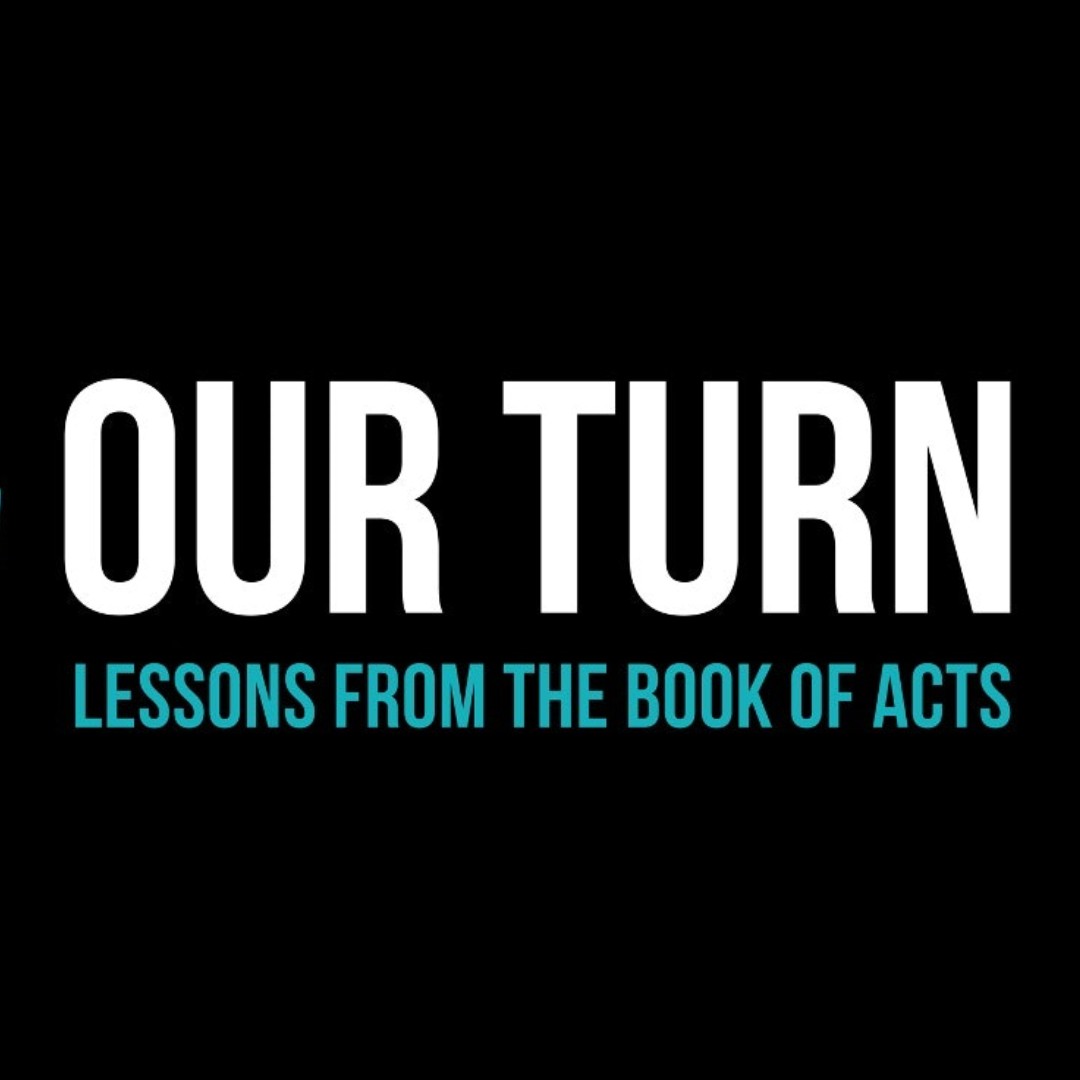We are in Acts chapter two, and that is awesome... because Acts chapter two is spooky, and weird, and confusing, and deep. All of that makes it very fun for me to study, and even more fun for me to teach.
Today's sermon is a mash-up.
But we start here, in Acts 2, and then to John 20.
Acts is classified as history — it tells the history of the first generation of Christians after Jesus.
The title of our series is Our Turn. Because the author of this book — his name is Luke — specifically says in his opening sentence that he is writing about "all that Jesus began both to do and teach." So this book is what Jesus began to do and teach, and that means that's now it's our turn, the church's turn, to keep on doing and teaching what Jesus did and taught. Our Turn.
And specifically here in chapter 2, my talk today is:
So if you've ever heard the phrase "speaking in tongues" right here is the source of all of that kind of talk:
"When the Day of Pentecost had fully come, they were all with one accord in one place. And suddenly there came a sound from heaven, as of a rushing mighty wind, and it filled the whole house where they were sitting. Then there appeared to them divided tongues, as of fire, and one sat upon each of them. And they were all filled with the Holy Spirit and began to speak with other tongues, as the Spirit gave them utterance." (Acts 2:1-4)
Pentecost was a feast day for the Jews which meant it was a pilgrimage. Jewish men traveled from all the different nations and language groups of the world to be in Jerusalem for Pentecost.
And when the Holy Spirit came upon the disciples, they spoke in tongues. That means they were suddenly able to speak in human languages they had never studied and never knew before.
Normally, when people today talk about speaking in tongues, this is NOT what they are talking about.
The modern version of speaking in tongues is not speaking in languages. Instead, today speaking in tongues is what is called ecstatic utterance.
Ecstatic utterance means syllables without meaning coming from a person in an altered state.
Let's set this aside for now. Because ecstatic utterance is not what happened on the day of Pentecost.
On the Day of Pentecost, the believers had a sudden and miraculous ability to speak in human languages they had never known before. The crowd was amazed.
